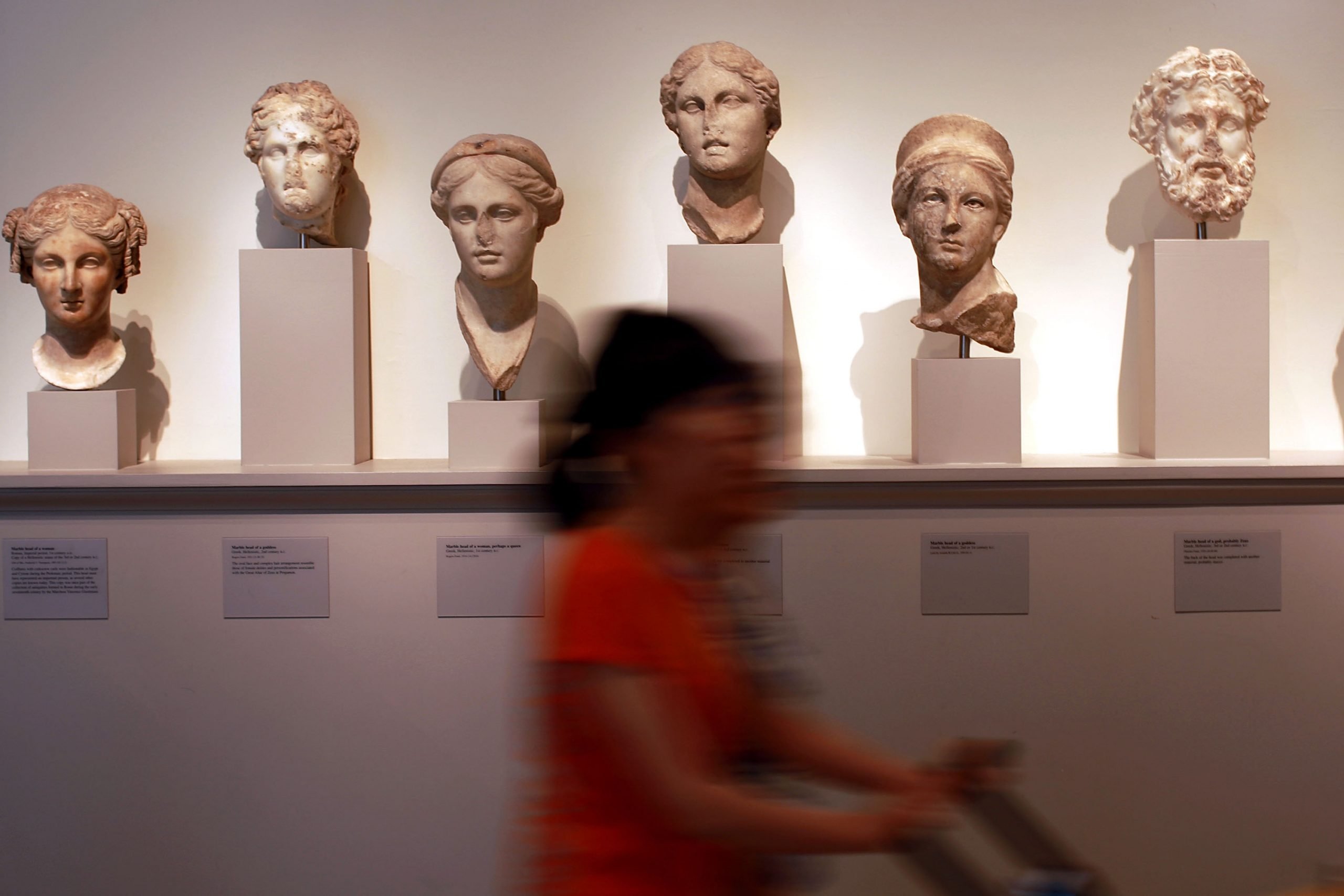
Amid increased scrutiny from political groups, criminal investigators, and media outlets, the Metropolitan Museum of Art has announced a slate of new initiatives to review its holdings for objects that have been unethically sourced.
The new initiatives were announced by Met director Max Hollein this week in a letter shared with museum staff, the text of which has since been published on the museum’s website. Chief among them is a plan to hire a manager of provenance research who will report to the director and oversee the appointment of three additional provenance researchers to aid in the work.
“The emergence of new and additional information, along with the changing climate on cultural property, demands that we dedicate additional resources to this work,” Hollein wrote.
The Met has also formed a committee of 18 curators, conservators, and others museum workers that will, in Hollein’s words, “consider our policies and practices in these areas.” Similarly, the museum’s board of trustees has formed a task force to weigh in on collecting activities.
Other initiatives include increased efforts to examine all collection works that came to the Met from art dealers who have been under criminal investigation, as well as plans to publicize the museum’s work in this and other areas related to its holdings.
Metropolitan Museum of Art director Max Hollein. Photo: Eileen Travell. Courtesy of the Met.
“These initiatives—the intensive review of our collection; the infusion of additional research resources; the counsel of our curators, conservators, and trustees; and the convening of conversations on cultural property—will make the Met an even stronger institution and a more powerful voice within the global community,” Hollein concluded in his letter.
Questions over the provenance of various objects in the Met’s holdings have been raised with increased frequency in recent years as interest in institutional collecting habits has become a hot-button political issue. In many cases, the museum surrendered the works in question to investigators or repatriated them to their country of origin.
Earlier this year, a report by the International Consortium of Investigative Journalists found that more than 1,000 works in the Met’s collection once belonged to individuals connected to antiquities crimes. Not long after, Propublica published its own lengthy report on the gaps in provenance information available for a series of Native American artifacts gifted to the Met by prominent donors Charles and Valerie Diker. The study found that just 15 percent of the 139 works donated or loaned by the Dikers have “solid or complete ownership histories.”
Svetambara Enthroned Jina, with Attendant Yaksha and Yakshi (second half of the 11th century C.E.). Copper alloy inlaid with silver and copper. Photo courtesy of the Metropolitan Museum of Art, New York.
Often, questions over the ethics of museum artifacts can be connected to the collectors who donated or sold them to the institution. In March, the Met announced that it would return to India 15 sculptures associated with the disgraced dealer Subhash Kapoor, while just this week, the Manhattan District Attorney’s office repatriated a pair of ancient Chinese stone carvings which had been given to the museum by the philanthropist Shelby White.
Under the guidance of District Attorney Alvin Bragg, whose office has cracked down on the illegal trafficking of cultural goods since he was elected last year, city officials have confiscated 17 artifacts from the Met this year to date.
But while the museum is aiming to get ahead of issues regarding its collection of over 1.5 million works, Hollein warns that the process will take time.
“In some areas, we are able to make swift and definite moves, and in others it may literally take years to acquire the needed provenance information and even more time to collaborate with other museums, nations, or individuals to find the right solution,” he wrote.
“The sheer magnitude of our collection and our involvement in so many cultural areas requires that we prioritize the most urgent matters, which sometimes means that other areas are not addressed with either the pace or responsiveness that they deserve,” the director went on. “Despite the urgency the media environment may suggest, we must be diligent, thoughtful, and fair in our evaluation of any evidence being presented to us. We are committed to getting it right, and equally committed to taking the time necessary to do so.”